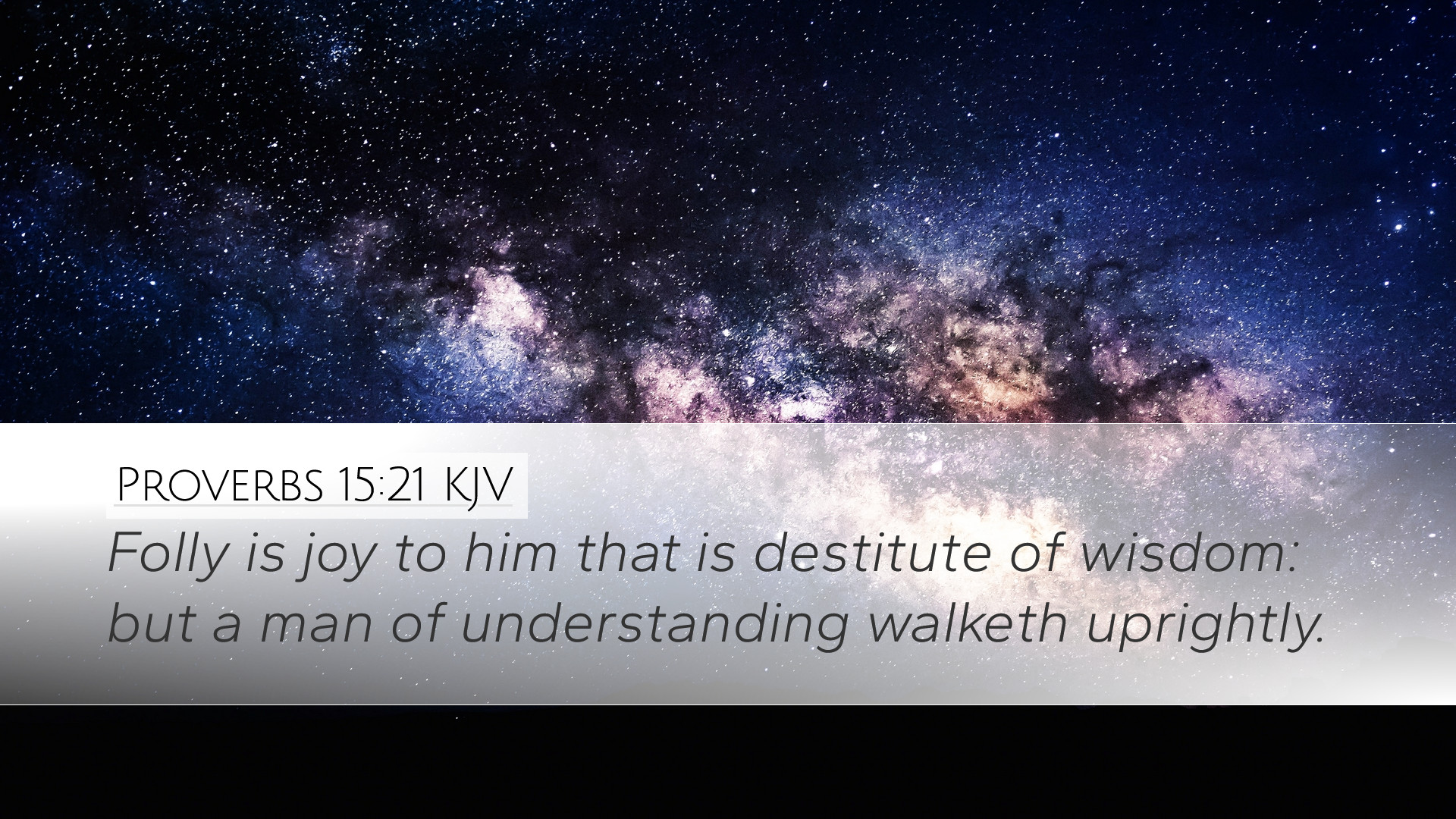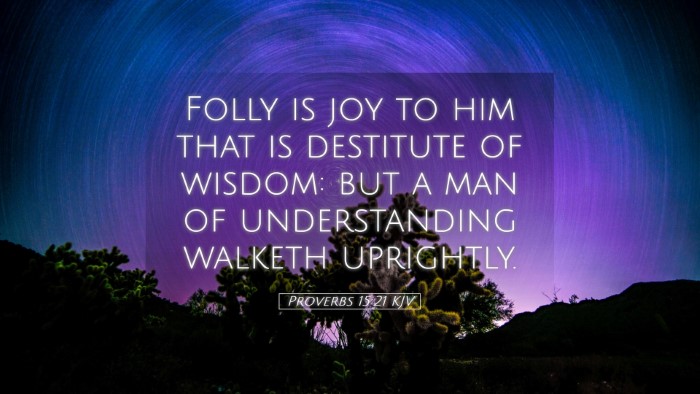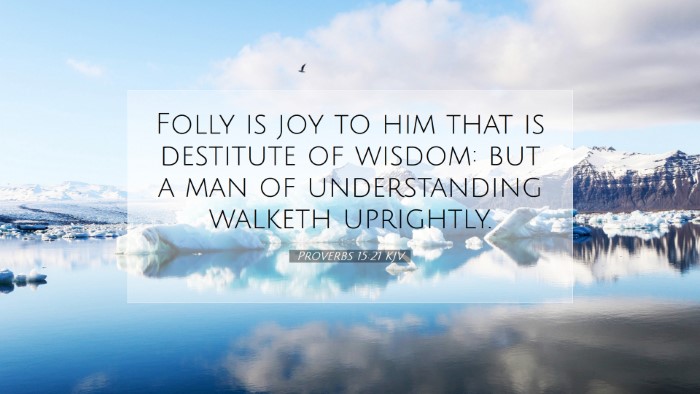Commentary on Proverbs 15:21
Verse: "Folly is joy to him who is destitute of discernment, but a man of understanding walks uprightly."
Introduction
This verse from Proverbs encapsulates a profound truth regarding the nature of folly and understanding. It contrasts the mindset of the simple-minded with that of the wise, emphasizing the importance of discernment in the pursuit of a righteous life. The insights drawn from public domain commentaries provide a deeper understanding for pastors, theologians, and scholars.
Exegesis of the Verse
Contextual Background: The Book of Proverbs is renowned for its practical wisdom and moral instructions. It often utilizes contrasts to teach valuable lessons. Here, the term ‘folly’ refers to ignorance or lack of wisdom, while ‘understanding’ signifies the capacity to make sound judgments.
Insights from Matthew Henry
Matthew Henry notes that folly may provide temporary pleasure to those who lack understanding, indicating the superficial nature of joy derived from misplaced priorities. He emphasizes that true joy is rooted in wisdom and virtue rather than in ignorance. Henry reflects on the dangers that arise from living according to one’s impulses without the guidance of prudence.
- Folly as Temporary Pleasure: Those devoid of discernment cling to folly, mistaking the fleeting joy it provides for genuine happiness.
- Call to Wisdom: Henry urges believers to seek understanding and spiritual insight to transcend the shallow pleasures of folly.
Insights from Albert Barnes
Albert Barnes sheds light on the idea that the ‘joy’ of the foolish is not equivalent to true happiness. In his reflection, he points out that the absence of discernment results in a life devoid of depth and purpose. Barnes emphasizes that understanding brings stability and uprightness, while folly leads to a disordered and chaotic existence.
- The Nature of Joy and Folly: Barnes contrasts the joy derived from folly with the enduring joy that comes from living in accordance with God’s wisdom.
- The Upright Walk: A man of understanding is portrayed as one who walks uprightly, demonstrating moral integrity and a grounded life.
Insights from Adam Clarke
Adam Clarke emphasizes the implications of the verse for moral and spiritual living. He argues that folly can be seductive, luring individuals into a false sense of security and happiness. Clarke posits that this false joy is especially pronounced in those who lack discernment, leading to decisions that ultimately harm themselves and others.
- Danger of Ignorance: Clarke highlights the spiritual peril of remaining in a state of folly, advocating for the pursuit of wisdom as a safeguard against destructive choices.
- Understanding as a Guiding Principle: He notes that a man of understanding, through discernment, is equipped to navigate life’s complexities, leading to a life that honors God.
Theological Reflections
This verse serves as a reminder of the dichotomy between worldly joy and spiritual fulfillment. Those who embrace folly may experience an ephemeral sense of joy, but it ultimately leads the soul away from truth and righteousness. In contrast, those grounded in understanding walk a path that aligns with God’s purposes, promoting both personal integrity and communal harmony.
Application for Believers:
- Pursuit of Wisdom: Believers are encouraged to actively seek wisdom through Scripture, prayer, and community to avoid the pitfalls of folly.
- Discernment in Decision-Making: The importance of discernment is highlighted as critical in making choices that reflect God’s will, leading to a life characterized by joy that is both profound and lasting.
Conclusion
Proverbs 15:21 encapsulates the eternal struggle between folly and wisdom. Through the insights provided by Matthew Henry, Albert Barnes, and Adam Clarke, it is evident that discerning between these two paths is crucial for spiritual vitality and moral living. The joy of the foolish is temporary and deceptive, whereas the man of understanding finds true joy and walks uprightly, guided by the principles of wisdom. As we reflect on this verse, may we be inspired to seek a deeper understanding of God's truth, leading to lives that reflect His glory.


